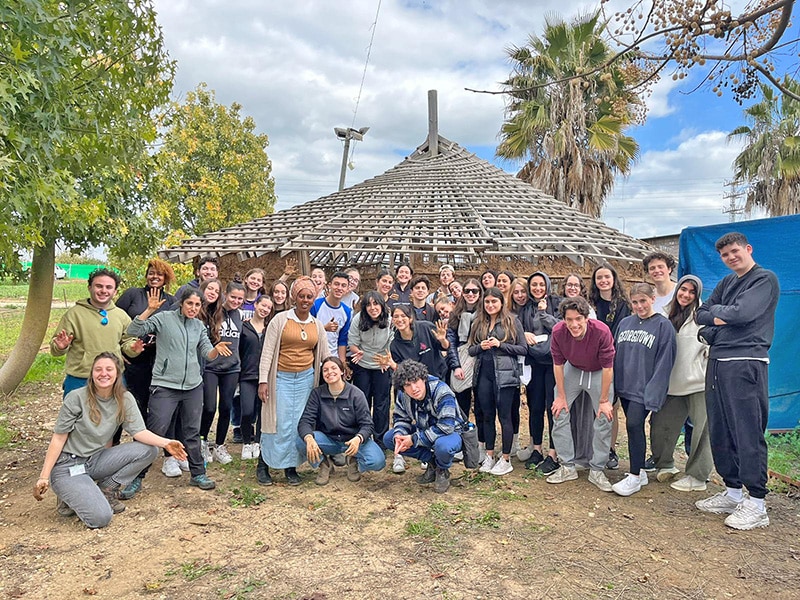This week we read the Torah portion of Terumah. Following the epic Giving of the Torah, the Children of Israel were commanded to construct the Tabernacle. By following the instructions and building the Tabernacle according to G-d’s specifications, G-d promises, vshachanti b’tocham – “I will dwell in them.”
There seems to be an obvious error in this statement. G-d should promise that He will “dwell in it.”
In order to explain this peculiarity, let us look at two ideas from the sages. The Talmud says, “Any man with knowledge, it is as if the Temple were built in his days.” Elsewhere, we see that with regard to escorting the coffin of our forefather Jacob, Rashi says that the tribes escorted the coffin in the same manner that they escorted the Tabernacle, with three tribes marching on each of its four sides.
There is clearly a connection between the Tabernacle/Temple and the righteous individual. Just as the Tabernacle/Temple was a wondrous place that brought those who visited it to have an encounter with the Divine, so too, the righteous cause those that they encounter to have a sense of the Divine. These individuals are like walking Temples.
This explains the peculiarity in our Torah portion. G-d says that by fulfilling His will to live an upright and moral life, the righteous can merit that a divine spirit will rest upon them just like it rested upon the Tabernacle. What about the rest of us? The prophet Isaiah states, “And your nation, all of them are righteous.”
We tend to put saintly people on a high pedestal; far removed from ourselves. “That’s for the righteous,” we say. “I’m just a simple Jew.” The Torah and the sages counter, “You belittle yourself! This is not beyond you. You too have the potential to be as holy as the Temple.” May we merit to realize our fullest potentials, and in so doing, merit to be walking Temples!
– Rabbi Liad Braude


















